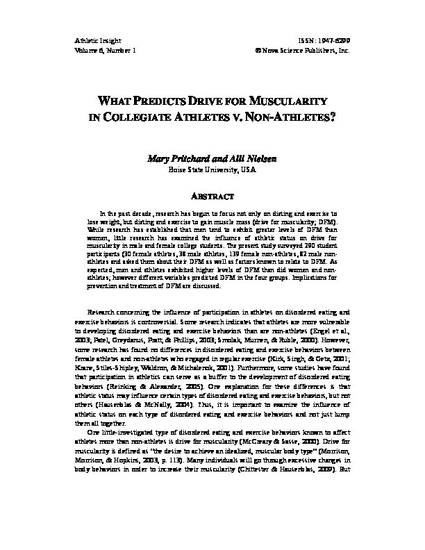
In the past decade, research has begun to focus not only on dieting and exercise to lose weight, but dieting and exercise to gain muscle mass (drive for muscularity; DFM). While research has established that men tend to exhibit greater levels of DFM than women, little research has examined the influence of athletic status on drive for muscularity in male and female college students. This present study surveyed 290 student participants (30 female athletes, 38 male athletes, 139 female non-athletes, 82 male nonathletes and asked them about their DFM, as well as factors known to relate to DFM. As expected, men and athletes exhibited higher levels of DFM than did women and nonathletes; however different variables predicted DFM in the four groups. Implications for prevention and treatment of DFM, are discussed.
Reprinted from: Athletic Insight, "What Predicts Drive for Muscularity in Collegiate Athletes v. Non-Athletes?", vol. 6, 1-15, © 2014 Mary Pritchard and Alli Nielsen. Used with permission from Nova Science Publishers, Inc.
Available at: http://works.bepress.com/mary_pritchard/63/
